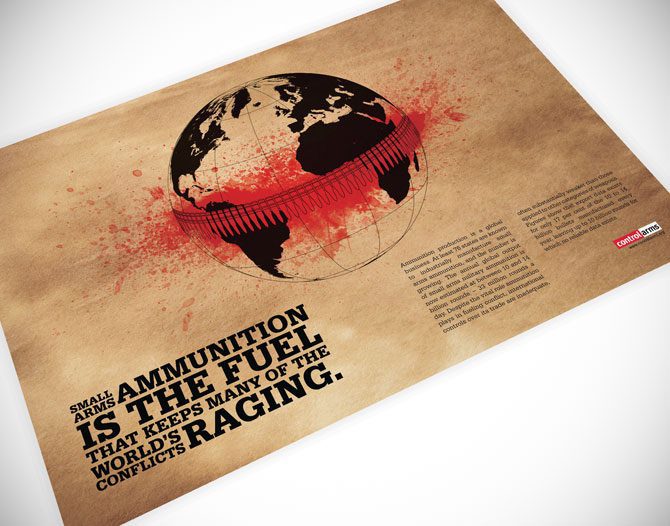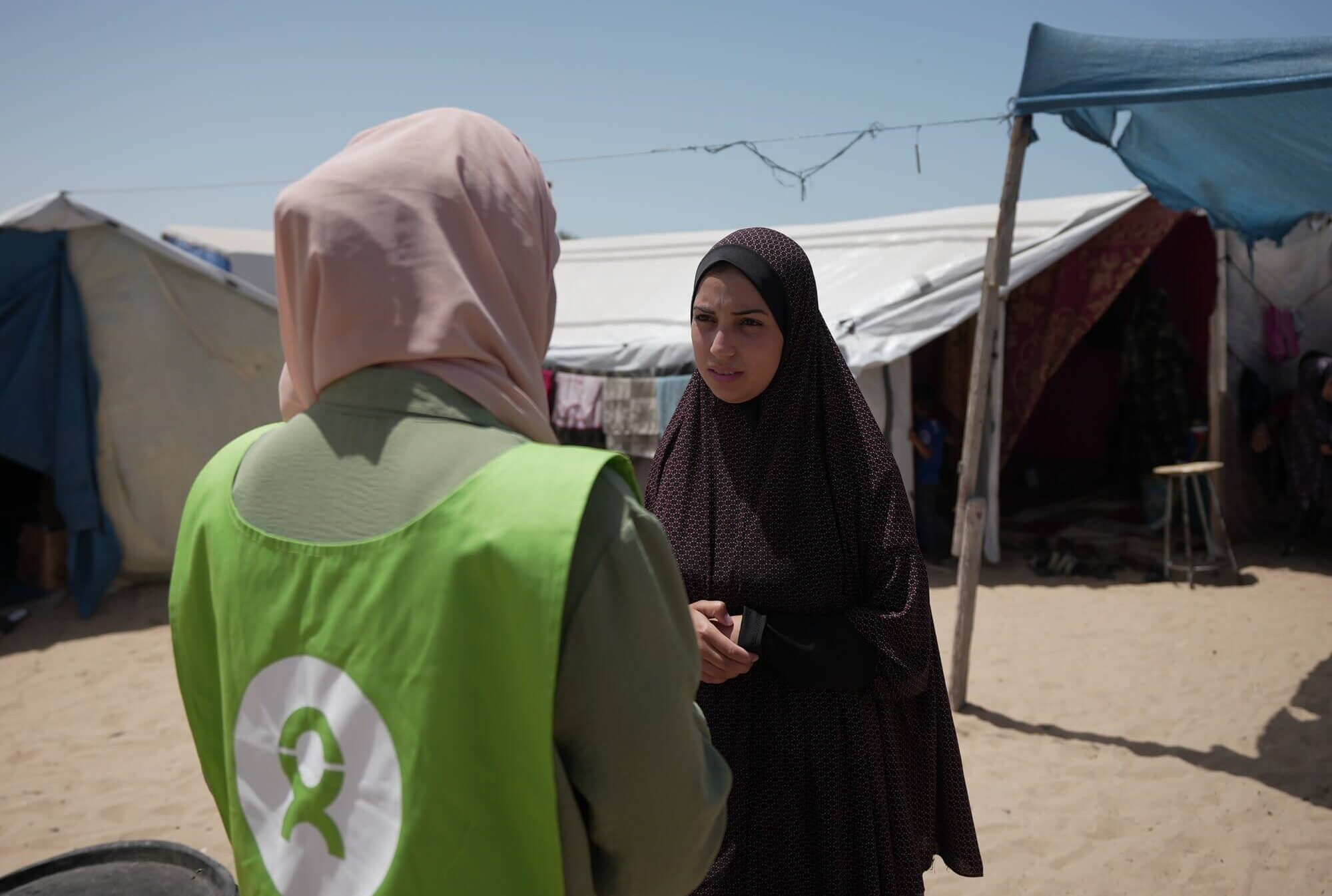Tomorrow we are hoping to make history. After 10 years of campaigning for a legally binding Arms Trade Treaty that works to curb the irresponsible weapons trade, world governments will finally vote on the treaty text in the UN General Assembly in less than 12 hours.
Over the past two weeks, Oxfam campaigners have been pushing for this outcome at the UN Arms Trade Treaty final negotiating conference in New York. With 1,500 people dying every day as a result of armed violence – most of them in developing countries – this campaign has been a major priority for Oxfam and other members of the Control Arms Coalition since 2003.
Retweet and show your support for a global #ArmsTreaty
Here is a quick recap on developments since our last blog update on Thursday last week…
The Control Arms analysis team swung into action together with ATT Legal to go through each article of the final treaty text last Thursday. Overall, it was generally agreed that final text was improved in a number of areas from the weak second text last week (for example ammunition and parts and components of weapons are now better covered in the treaty). While there are still some gaps and areas that could be improved, we are broadly supportive of the final text. If adopted we believe the treaty will help to save lives by preventing irresponsible arms transfers, as long as it is fully implemented and strengthened over time.
The last day of the Final Conference on the ATT was a dramatic roller-coaster ride. The corridor to the conference room became over-crowded with hundreds of delegates trying to get into the room. Security shut the door, leaving many Ambassadors, including the President of the Conference, shut outside in an increasingly tense crowd. Eventually an overflow room was set up and proceedings got underway.
The President, Australia’s Ambassador in Geneva Peter Woolcott, moved to adopt the treaty text but consensus was blocked by just three states: Iran, North Korea and Syria. Mexico made an attempt to galvanise the conference and the President to adopt the treaty anyway, as the will of the overwhelming majority was clear. Japan, Nigeria, Chile and others agreed, cheers and clapping resonated from the overflow room, but Russia intervened to say no, consensus was clearly blocked, and the President agreed.
We did lots of media work, condemning the blockers, and calling for a swift vote at the General Assembly, and meeting with progressive states on this. The story was widely picked up across the world from the NY Times all the way out to The West Australian. Meanwhile on twitter, our hashtag #armstreaty trended in 12 cities worldwide, including Sydney.
Eventually, at 10pm, the conference report was adopted, and a resolution calling for a vote at the UN General Assembly circulated, led by Kenya and 11 other governments (including Australia, UK and even the United States, which only a couple of years ago was an opponent of the Treaty).
Easter Monday Control Arms launched an action to Get Out the Vote. Teams of campaigners in pairs ran round Manhattan visiting every mission with an ‘Invitation from the World’ to vote yes on Tuesday 2 April. Photos were taken with diplomats holding I’m voting yes signs and sent out on Twitter and Facebook.
Inside the UN, Vote Yes stickers were the fashion accessory to be seen with, and lobbyists tracked down smaller delegations who were at other meetings in the UN. Media team continued to help us get coverage of the result and next steps.
Now there are at least 90 co-sponsors, and more who have committed to vote yes. Of course, we are not counting our chickens until the vote happens and the result is in. BUT WE ARE CLOSE!!
The General Assembly session to vote on the Arms Trade Treaty starts at 14:00 GMT tomorrow (or 1am Melbourne/Sydney time) so by the time the sun rises tomorrow in Australia we will all know the outcome. If you feel particularly enthusiastic you can watch the proceedings LIVE on the UN channel on your computer!
How can you get involved in making history happen?
Follow on Twitter @controlarms #ArmsTreaty
Retweet and show your support for a global #ArmsTreaty
1,500 people die every day because of armed violence. We can help end this. RT to urge more countries to #VoteYes for #ArmsTreaty at #UN!
— Oxfam Australia (@OxfamAustralia) April 2, 2013



